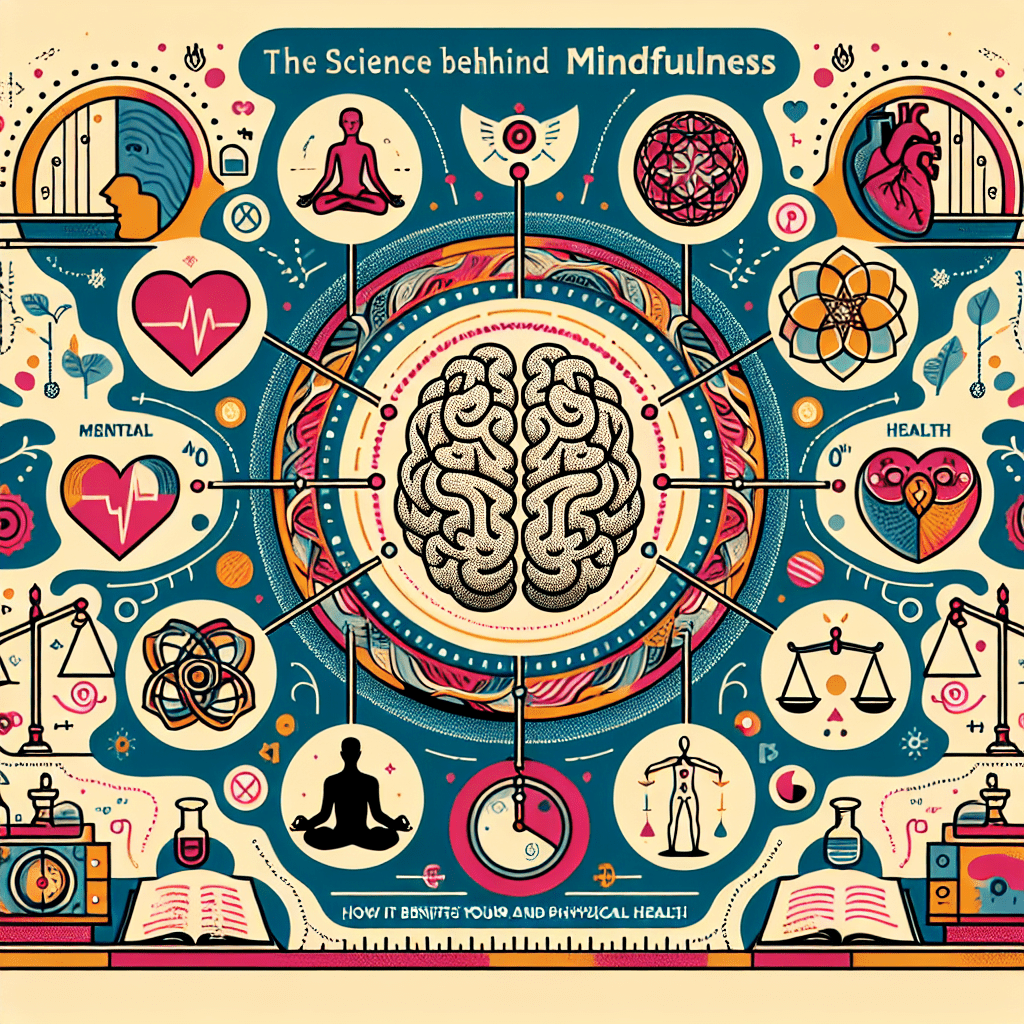Are you feeling stressed, anxious, or overwhelmed? Mindfulness may be the answer you’re looking for. This ancient practice has gained popularity in recent years for its numerous mental and physical health benefits. In this article, we will explore the science behind mindfulness and how it can improve your overall well-being.
The Science of Mindfulness
Mindfulness is the practice of being present and fully engaged in the moment, without judgment. Various studies have shown that engaging in mindfulness practices can have a profound impact on both the brain and the body. By training your brain to focus on the present moment, you can reduce stress, anxiety, and depression. Mindfulness has also been linked to improved cognitive function, better sleep, and enhanced mood.
One of the key benefits of mindfulness is its ability to change the structure and function of the brain. Research has shown that regular mindfulness practice can increase grey matter density in the brain, which is associated with improved memory, learning, and emotional regulation. Mindfulness has also been found to reduce the size of the amygdala, the part of the brain responsible for the fight-or-flight response, leading to decreased stress and anxiety levels.
Benefits of Mindfulness for Mental Health
Mindfulness has been shown to be an effective tool for managing a variety of mental health conditions, including anxiety disorders, depression, PTSD, and ADHD. By practicing mindfulness, individuals can develop the skills to cope with difficult emotions, enhance self-awareness, and improve their overall mental well-being. Mindfulness-based therapies, such as Mindfulness-Based Stress Reduction (MBSR) and Mindfulness-Based Cognitive Therapy (MBCT), have been found to be as effective as medication in treating depression and preventing relapse.
Additionally, mindfulness can help individuals develop a greater sense of compassion and empathy towards themselves and others. By cultivating a non-judgmental attitude, individuals can break free from negative thought patterns and develop a more positive outlook on life. This increased sense of well-being can lead to improved relationships, greater happiness, and enhanced overall quality of life.
Benefits of Mindfulness for Physical Health
In addition to its mental health benefits, mindfulness has also been shown to have a positive impact on physical health. Research has found that mindfulness can reduce inflammation, lower blood pressure, and improve immune function. By reducing stress and anxiety, mindfulness can also lower the risk of chronic diseases such as heart disease, diabetes, and obesity.
Furthermore, mindfulness can help individuals adopt healthier lifestyle habits, such as eating a balanced diet, exercising regularly, and getting an adequate amount of sleep. By being more present and aware of their actions, individuals can make better choices that support their overall well-being. This can lead to improved physical health outcomes, such as weight loss, decreased pain, and increased energy levels.
Conclusion
In conclusion, the science behind mindfulness is clear: this ancient practice has numerous mental and physical health benefits. By training your brain to be present and focused, you can reduce stress, anxiety, and depression. Mindfulness can also improve cognitive function, sleep, mood, and overall well-being. Whether you’re looking to manage a mental health condition or simply improve your quality of life, incorporating mindfulness into your daily routine can have a lasting and positive impact on your health.
FAQs
Q: How often should I practice mindfulness?
A: It’s recommended to practice mindfulness for at least 10-20 minutes a day to experience the full benefits. However, even a few minutes of mindfulness practice can make a difference in your mental and physical well-being.
Q: Can anyone practice mindfulness?
A: Yes, mindfulness is accessible to everyone, regardless of age, gender, or background. It’s a simple practice that can be tailored to fit your individual needs and preferences.
Q: How long does it take to see results from mindfulness practice?
A: Some individuals may experience immediate benefits from mindfulness practice, such as a sense of calm and relaxation. However, for lasting and significant changes in mental and physical health, it’s recommended to practice mindfulness consistently over time.
Tip
Remember, mindfulness is a skill that takes time and practice to develop. Be patient with yourself and allow yourself to fully immerse in the present moment without judgment. With regular practice, you’ll soon start to reap the many benefits of mindfulness on your mental and physical health.
#Science #Mindfulness #Benefits #Mental #Physical #Health
